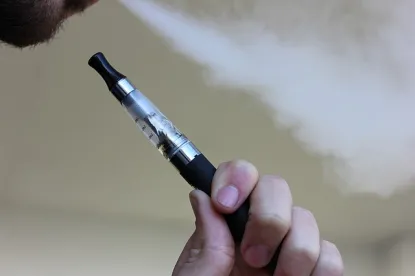DOJ Indicts 47 Individuals in Largest COVID-19 Fraud Scheme To Date
On September 20, 2022, the US Department of Justice (“DOJ”) announced federal criminal charges against 47 defendants from the nonprofit, Feeding Our Future (“FOF”), including FOF’s founder and executive director, Aimee Bock, for defrauding the Federal Child Nutrition Program (“FCNP”).
The US Department of Agriculture (“USDA”) administers the FCNP and disburses funds to state governments to provide free meals to children in need. The Minnesota Department of Education (“MDE”) administers and oversees the FCNP in Minnesota. In Minnesota, the meals provided to children in need are served by “sites” that are sponsored by an authorized sponsoring organization. Each authorized sponsoring organization is responsible for monitoring their sites and preparing reimbursement claims, of which they keep 10-15% as an administrative fee.
According to DOJ’s press release, the defendants, using FOF’s sponsorship of various sites, obtained and misappropriated millions of dollars in FCNP program funds that were intended to reimburse the cost of serving meals to children during the COVID-19 pandemic.
As part of the scheme, defendants are alleged to have: (i) created shell companies to enroll in FCNP sites and to receive and launder monies; (ii) recruited individuals and entities to open FCNP sites in Minnesota; (iii) created and submitted false documentation, including false invoices and fake attendance rosters with fake names; (iv) submitted the fraudulent claims to MDE and disbursed the fraudulently obtained funds to those involved in the scheme; and (v) paid kickbacks in cash often disguised as “consulting fees.” In total, FOF opened more than 250 sites in Minnesota and in 2021, FOF received nearly $240 million in FCNP funds, a substantial increase from the $3.4 million it received and disbursed in 2019. As a result, defendants received more than $18 million in administrative fees and are alleged to have used the proceeds on luxury cars, houses, jewelry, property, and to fund international travel.
Read the DOJ’s press release here.
New DOJ Guidance Aims To Speed Up White-Collar Investigations
On September 15, 2022, the DOJ made substantial revisions to guidance regarding white-collar criminal investigations with an aim to speed up indictments against executives. The memorandum raises the stakes for companies facing a potential government investigation by promising executives that their companies won’t face a guilty plea or a potential compliance monitor if they quickly and voluntarily turn over information. The DOJ also suggests it will give less weight to any potential crimes committed at least ten years prior that are not relevant to the instant investigation.
The Deputy Attorney General, Lisa Monaco, stated that it was the DOJ’s goal to strengthen criminal enforcement policies with respect to individual accountability by charging individuals at a faster rate. Amongst other guidance in the memorandum, the DOJ stated that in order for corporations to be eligible for any cooperation credit, corporations must timely disclose all relevant and non-privileged facts about individual misconduct. In addition, the DOJ stated that when appropriate, DOJ prosecutors may wait to initiate a federal prosecution in order to better understand the scope and effectiveness of a prosecution in another jurisdiction.
Read the DOJ’s memorandum here.
E-Cig Company, Juul, Sues FDA For FOIA Documents
Juul Labs Inc. sued the US Food and Drug Administration (“FDA”) in DC federal court for failing to provide documents under Juul’s Freedom of Information Act (“FOIA”) requests for the scientific disciplinary review behind the FDA’s decision to deny Juuls’ premarket tobacco marketing application and now paused order to ban Juul from the market.
Prior to its decision to deny Juul’s premarket tobacco marketing application, the FDA blamed Juul, a vaping company, for the rise in youth vaping. The FDA claimed Juul’s applications to market tobacco- and menthol-flavored products didn’t have sufficient evidence about the products’ toxicology to show that marketing is sufficiently safe to protect public health. Despite FDA’s questioning, FDA permitted Juul’s products to stay on shelves, pending additional scientific review of Juul’s application. In its case against the FDA, Juul argues that FOIA requires the FDA make public the scientific facts behind its decision to reject Juul’s application and that the sought-after information and documents reflect fact-based and scientific conclusions reached by the agency’s scientists. While the FDA regularly releases such materials regarding its decisions for other tobacco products, here, the FDA invoked the “deliberative process privilege,” which protects information about how a government agency reaches a decision from being disclosed, in its refusal to hand over Juul the requested documents.
The case is captioned Juul Labs Inc. v. Food And Drug Administration, Case No. 1:22-cv-02853 in the US District Court for the District of Columbia.






 />i
/>i

